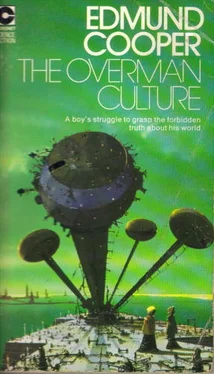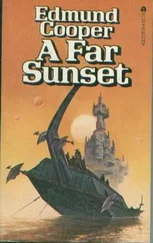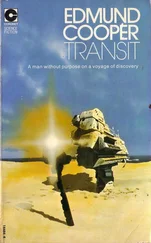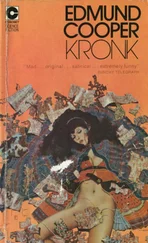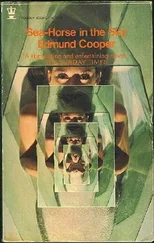Edmund Cooper - The Overman Culture
Здесь есть возможность читать онлайн «Edmund Cooper - The Overman Culture» весь текст электронной книги совершенно бесплатно (целиком полную версию без сокращений). В некоторых случаях можно слушать аудио, скачать через торрент в формате fb2 и присутствует краткое содержание. Город: London, Год выпуска: 1977, ISBN: 1977, Издательство: Coronet Books, Жанр: Фантастика и фэнтези, на английском языке. Описание произведения, (предисловие) а так же отзывы посетителей доступны на портале библиотеки ЛибКат.
- Название:The Overman Culture
- Автор:
- Издательство:Coronet Books
- Жанр:
- Год:1977
- Город:London
- ISBN:978-034017860
- Рейтинг книги:5 / 5. Голосов: 1
-
Избранное:Добавить в избранное
- Отзывы:
-
Ваша оценка:
- 100
- 1
- 2
- 3
- 4
- 5
The Overman Culture: краткое содержание, описание и аннотация
Предлагаем к чтению аннотацию, описание, краткое содержание или предисловие (зависит от того, что написал сам автор книги «The Overman Culture»). Если вы не нашли необходимую информацию о книге — напишите в комментариях, мы постараемся отыскать её.
The Overman Culture — читать онлайн бесплатно полную книгу (весь текст) целиком
Ниже представлен текст книги, разбитый по страницам. Система сохранения места последней прочитанной страницы, позволяет с удобством читать онлайн бесплатно книгу «The Overman Culture», без необходимости каждый раз заново искать на чём Вы остановились. Поставьте закладку, и сможете в любой момент перейти на страницу, на которой закончили чтение.
Интервал:
Закладка:
He said to the gardener: “Why do you treat us like—like plants?”
The gardener laughed. “Because you are not real people,” he said in a voice that echoed through the greenhouse. “You can’t be made. You have to be grown. You are weak. If I don’t look after you very carefully, you will all shrivel up and die.”
“Do real people bleed?” asked Michael.
The gardener was amused. “Real people don’t need to bleed,” he thundered. “Real people are made not to bleed.”
The greenhouse became a doll factory; and all the children, their feet still embedded in earth in the plant pots, watched the dolls being made.
There were big baskets of arms and legs and heads and bodies. People in overalls were fitting the parts together. But when the dolls were assembled, they were no longer dolls. They were children. They ran about, they laughed, they jumped, they talked.
One of them was Ellen Terry.
She came to Michael’s plant pot. She ran round and round it until he became dizzy, just watching her. Then she stood in front of him, laughing.
“You are not a real person,” she said. “Michael Faraday is not a real person. I am a real person. Look at all that blood! Horrible! Horrible!”
Michael was enraged, humiliated, afraid. Fear and anger gave him strength. Suddenly, he stepped from the plant pot and seized Ellen. He tore off her arms and threw them into a basket. Then he tore off her legs and threw them into another basket.
No one seemed to notice. The people in overalls were still making dolls that suddenly became children.
Ellen, armless and legless, lay on the floor, looking at him, still laughing. In a burst of fury, he tore off her head and threw it into the nearest head basket. Then he kicked her body away. No one seemed to notice.
He turned to all the children still standing stiffly in their plant pots. The red bloodstains made grotesque patterns all over their bodies.
Michael went to Emily Bronte. She stopped weeping and began to smile at him. He put his arms round her and tried to lift her out of the plant pot.
Then he became aware of a great deal of shouting. He whirled round and saw that all the people in overalls were running toward him. They were carrying knives and needles and scissors. The gardener was running toward him also. The gardener was brandishing a huge pair of shears.
Michael woke up screaming.
Mother came rushing into his room. She held him in her arms and let him sob against her body until he realized that he was not in a greenhouse or a doll factory but safe in bed in his own room, with the clockwork train set on the table in the corner and the toy soldiers set out in neat ranks on a chest of drawers.
Mother was talking. Her voice sounded soothing, but Michael could not concentrate on the words.
Then Father came. Michael could not look at his face. Father said how silly it was to have bad dreams, and he asked what it was all about. But Michael would not tell him.
After a time, Mother brought something warm and sweet to drink. Michael drank it quickly, and yawned and felt very tired indeed. Then he lay back and closed his eyes. There were no dreams this time. Only darkness.
It was Saturday afternoon, a sunny, breezy Saturday afternoon, and Michael was in St. James’s Park with his kite. He was pleased at being allowed to go out alone. Mother and Father let him go out by himself quite a lot these days. He was growing bigger, older. Perhaps even wiser.
There were not many people in St. James’s Park. Here and there one or two ladies in long, rustling skirts and with parasols strolled and talked with men wearing bright blazers and boaters. Here and there a few children played with hoops or bats and balls.
It was all very pretty, thought Michael. It was so extremely pretty. Just like a picture. Or a scene. A scene from a film.
He dropped his kite on the grass and, despite the sunshine, felt suddenly cold. A scene from a film! It was like a scene from a film. It was, somehow, too perfect, too neat. It didn’t seem real.
His childish mind was incapable of grappling with paradoxes. It was real and it had to be real and yet it didn’t seem real. And the people didn’t seem real, and the vistas of London didn’t seem real and, for all Michael knew, the entire world might not be real.
He was sweating, he was shaking, and the sweat was cold on his forehead and body. And he felt dreadfully afraid.
Then suddenly the horrible sensation left him, because he caught sight of Emily Bronte. She was sitting on a grassy bank making a daisy chain. Emily, with her dark-brown hair and wide blue eyes was real. In fact, there could be nothing more splendidly real than Emily Bronte sitting in the sunlight, making a daisy chain.
Michael picked up his kite and went to sit beside her.
“Hello.”
“Hello, Michael. What a marvelous kite! Will it fly?”
“Yes. I’ll show you in a little while. Father made it…. Does your father make things?”
“Mother makes dolls’ clothes. Father once made the dolls’ house. I don’t think I like dolls very much now.”
Michael was silent for a while. Then he said awkwardly: “Emily, does everything seem all right to you?”
“How do you mean?”
He gestured with his arm. “All this—the park, the people….The way we live.” He floundered.
Emily put the daisy chain down and looked at him. “I don’t know what you mean…. It is real, isn’t it? I mean we are real, and living is real…. I don’t know what you mean.”
“What about the difference?” he said with sudden force. “What about the difference between us and them?”
“Mother and Father say we are not old enough to understand,” said Emily calmly. “They say that when we are old enough we will be able to understand everything.”
“I bet most of these people are them,” said Michael. “I bet most of the people in London are them! We—we are the strange ones. They know they are all right. I don’t know that I’m all right…. I’m sorry, Emily. I don’t know how to say what I want to say.”
She put a hand on his shoulder. “Don’t worry, Michael. Don’t be upset. One day we shall understand. I’m sure of it.”
Michael liked the touch of her hand. He was sorry when she took it away and let it rest lightly on the grass. He wondered what would happen if he touched it with his own hand. He decided to find out. Nothing happened. Emily did not take her hand away. He held it, but she only smiled. He liked holding it. Emily’s hand felt cool and soft. Not hard, like Ellen Terry’s hand.
“I love you,” he said impulsively. “I love you, Emily Bronte.”
She laughed. “You are a nice boy. I love you, too.”
“I always will,” said Michael, not daring to look at her. “I always will love you…. There—there isn’t anyone else to love.”
“Don’t you love your mother and father?”
“No.”
Emily was silent for a while. Then she said: “I don’t think I love mine, either. I like them, but I don’t love them. It’s funny, isn’t it?”
Michael was embarrassed, and let go of her hand. “Do you know about reading?”
“No. Do you?”
“I keep asking them to let me learn,” he exploded, “but they say it’s not necessary. They say it’s something I should do when I’m older. They say I can find out everything I need to know just by asking. But I can’t. I want to read now. I want to find books and see what the words mean…. You’ve seen books in films, haven’t you? Whole rows of them. I want rows and rows of books—not picture books. Books with words.”
“I expect it won’t be long before they let you learn,” said Emily, soothing him. “I think I would like to be able to read, too. But I can wait.” She smiled. “If nobody teaches us, I expect we can teach ourselves when we are old enough to understand.”
Читать дальшеИнтервал:
Закладка:
Похожие книги на «The Overman Culture»
Представляем Вашему вниманию похожие книги на «The Overman Culture» списком для выбора. Мы отобрали схожую по названию и смыслу литературу в надежде предоставить читателям больше вариантов отыскать новые, интересные, ещё непрочитанные произведения.
Обсуждение, отзывы о книге «The Overman Culture» и просто собственные мнения читателей. Оставьте ваши комментарии, напишите, что Вы думаете о произведении, его смысле или главных героях. Укажите что конкретно понравилось, а что нет, и почему Вы так считаете.
